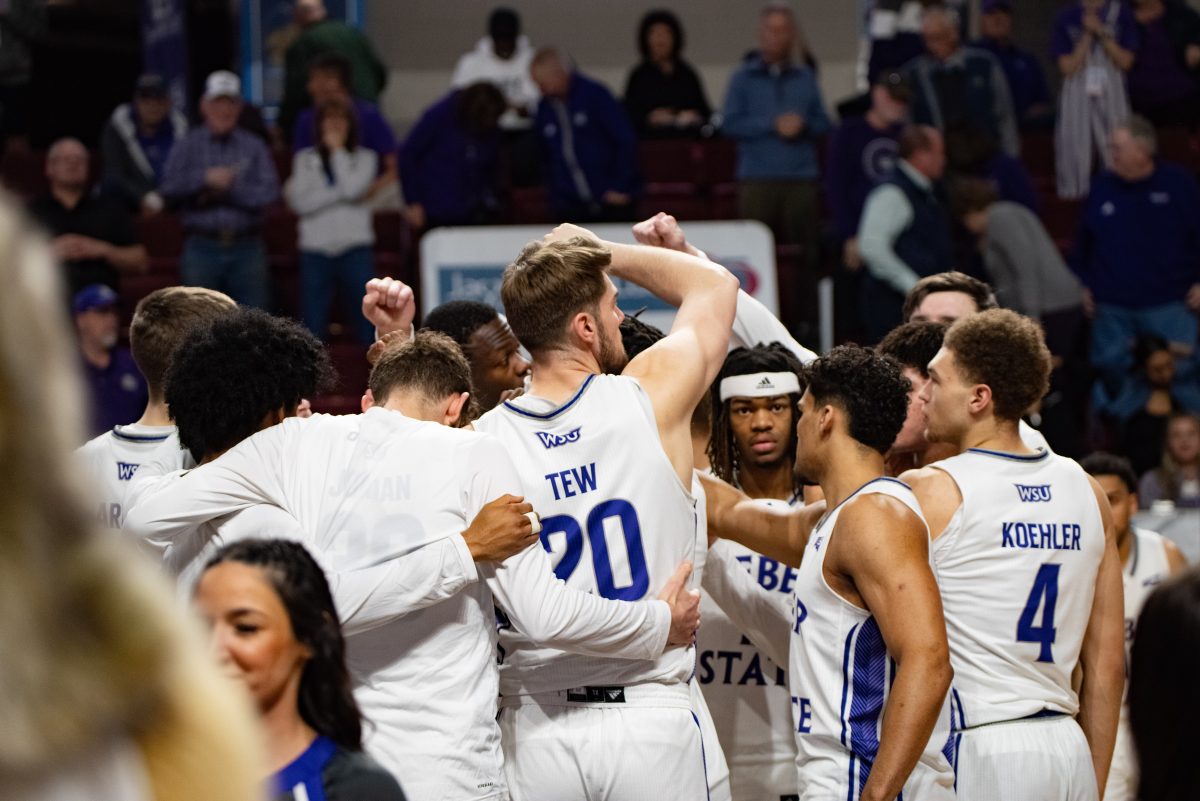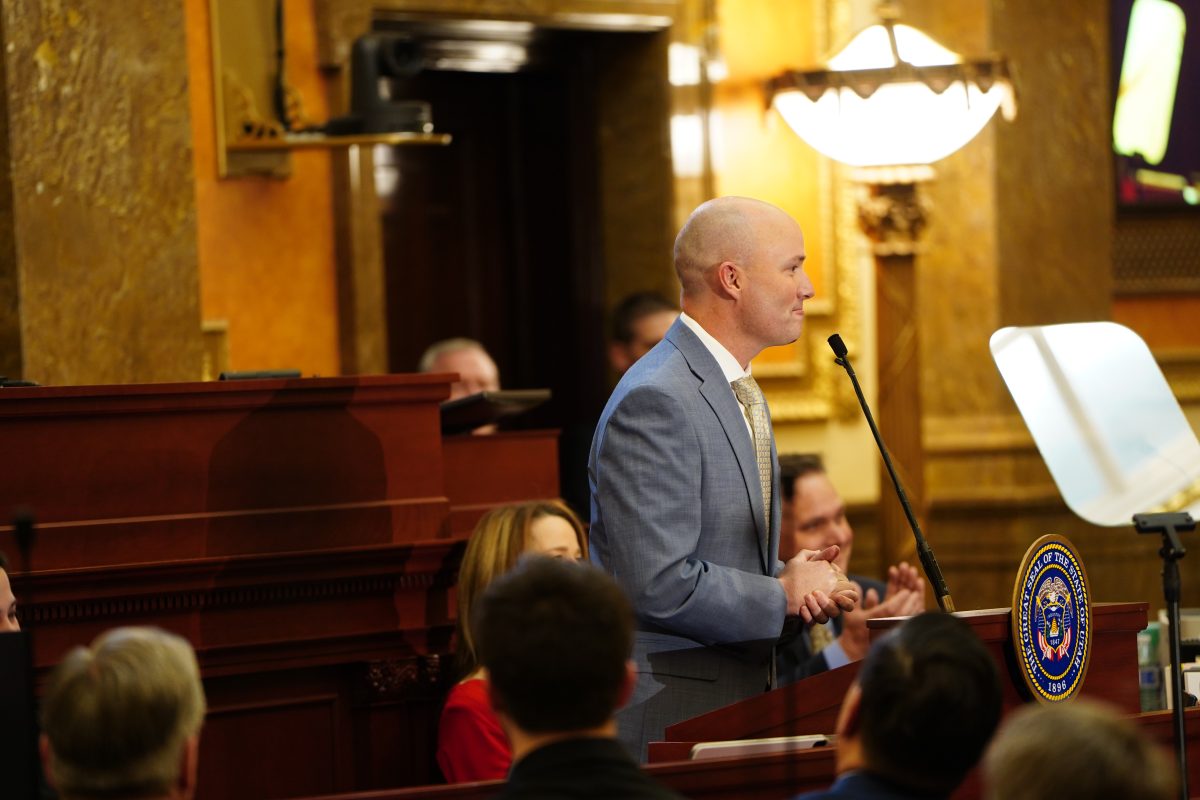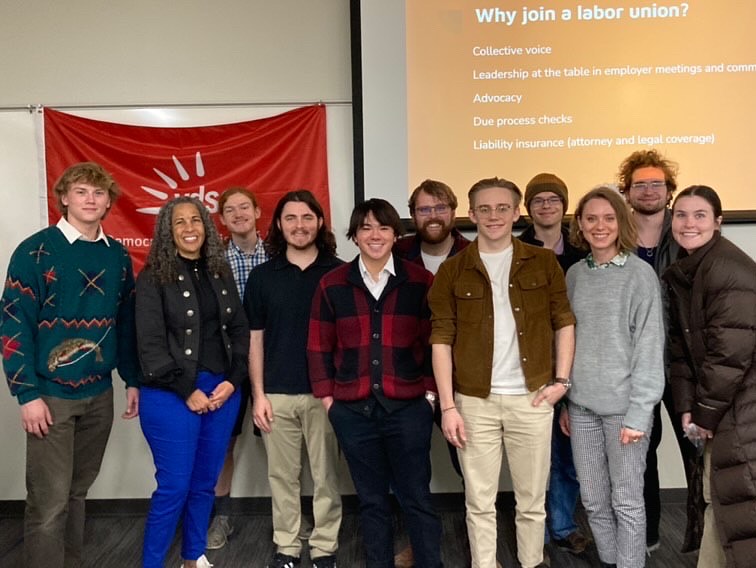A new semester is well underway at Weber State University, and with a new semester comes new students. This spring semester especially brings more students in person on campus, which means more waste is created, and there is more potential for contaminated recycling bins throughout Weber’s campus.

A recent study from The Recycling Partnership, a non-profit aimed at improving recycling programs nationwide, states that an average of 16.9% of recycling ends up in a landfill. So throwing away that soda bottle into the bold blue bin may not end in the wanted result. The root cause? Contamination.
While seven types of plastic can be recycled, WSU currently only accepts two of those seven. It’s crucial to stay educated about what can and cannot be recycled to avoid contamination, especially on campus.
Contamination in recycling can refer to placing the wrong items inside a recycling bin, such as liquids and food waste.
WSU currently outsources all recycling to Recycled Earth, a local company in Ogden.
Recycled Earth currently accepts the following: Clean and empty plastics labeled 1 and 2, office paper, newspaper, cardboard free of oil stains, steel cans and aluminum cans.
Recycled Earth does not accept plastics labeled 3 through 7, plastic bags, wrap, film, glass, shredded paper, clothing, shoes, plastic toys, medical waste, Styrofoam, glossy paper, batteries, diapers and lined mail pouches.

It wasn’t always this way. The rejection of plastics 3 through 7 came shortly after 2017 when China’s General Administration of Customs banned the import of contaminated plastics and residential recyclables.
As a result, 99% of plastic imports into China vanished, and companies worldwide changed their policies around recycling, according to Resource Recycling News.
It’s not that plastics 3 through 7 are the most contaminated, but they are harder to recycle, and recycling is now, more than ever, a business.
Plastic 1, polyethylene terephthalate or polyester, and plastic 2, also referred to as HDPE, or high-density polyethylene, are the safest, most abundant plastics and easily recyclable, making them the most profitable.

Jenn Bodine, sustainability manager at WSU, shared the ongoing education around recycling for both students and faculty. In addition, custodians receive annual, continued training and education surrounding these matters.
The Shepherd Union sees all walks of life. It’s where new students explore and get their ID card, club and community tables are set up daily and food is constantly in reach.
Due to this, Bodine pointed to Shepherd Union as having a constant issue with contamination.
“It’s hard to say who the culprits are,” Bodine said.

As for glass recycling options, WSU uses Salt Lake-based company Momentum for all glass recycling needs. Smaller glass recycling bins can be located throughout campus, with a specific glass recycling sign above them.
More significant amounts of glass and oversized glass items can be recycled at community-based receptacles. These bigger bins can be found at 4th Street Park, the Green Waste Site and Ogden High School’s south parking lot.
So, take a few moments to think about what is being recycled and if it meets the guidelines. Check the guidelines often to stay updated on any changes that have been made.
“Be the good example you want to see in others,” Analeah Vaugh, Green Department Program manager, said.
It is not someone else’s job to sort through the recycling bin. If the bin is contaminated, it will get dumped. If one isn’t sure, they should toss it. If the drink they just finished or the rice bowl they just devoured is recyclable, make sure it’s clean. If one sees contamination happening in the bin, they should find a different clean bin to toss their recycling into.
There are usually multiple recycling bins within sight of each other. Being aware and educated is what can lower contamination rates and make one feel good about recycling.
Check WSU’s Sustainability page for upcoming events, statistics and new projects coming Weber’s way. Be sure to also stay updated via the WSU sustainability club’s Instagram page.










